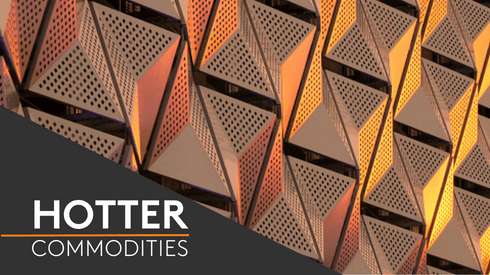Over the years, Chinese companies have been flocking to Indonesia to tap into the world’s largest-known nickel reserves, a key raw material that is traditionally used in the stainless steel sector but has experienced growing application in the burgeoning electric vehicle (EV) industry. But the tide of investments is ebbing due to headwinds.
“This set of waves is like ten years before when Chinese saw opportunities in nickel pig iron, but the recent new energy side of nickel investment is much more capital intensive, subject to price volatility, not to mention the rising geopolitical tensions,” a nickel trader in eastern China said, adding that the nickel rush is set to slow.
The benchmark nickel price on the London Metal Exchange was the worst-performing base metal in 2023, losing as much as 45% of its value since the start of the year.
In addition, the definition of foreign entity of concern (FEOC) laid out by the US government in December will play a role in preventing Chinese companies from qualifying for Inflation Reduction Act (IRA) tax breaks.
On December 20, Nanjing Hanrui Cobalt said in a notice that it would scrap its high-pressure acid leach (HPAL) project, which had a projected capacity of 60,000 tonnes of nickel content, citing shrinking economic value amid unfavorable market conditions.
“The investment decision was based on the fundamentals in 2019, but with the rapid growth of the battery metal capacity, the market has already been tipped into a structural surplus,” Shanghai-listed Hanrui said.
Meanwhile, multiple sources told Fastmarkets that Huayou’s Huashan nickel-cobalt project with an annual output of 120,000 tonnes of nickel content was also on hold. The project was originally scheduled to launch in 2025.
“The already-started projects are still on the cards, but companies with cash flow issues might have to shelve plans,” a producer source said.
Nickel rush
While Indonesia is sitting on the largest laterite nickel ore reserves in the world, the southeastern Asian country banned nickel ore exports in 2020 as part of an effort to draw onshore investment and to move up industrial chains.
China, on the other hand, is short of raw material but has the latest generation of high-pressure acid leaching production technology, which can turn low-grade nickel ore into metal to serve the booming EV demand.
This boded well for cooperation following the ban in 2020. A series of nickel refinery and smelter investments by Chinese companies sprung up, turning the islands of Sulawesi and Halmahera into an industrial heartland, while Indonesia became the biggest nickel producer in the world.
Weakening prices
Part of the ramp up of nickel capacity was motivated by then-inflated nickel prices, stemming from the massive short-squeeze in 2022 on the LME, at a time when nickel sulfate prices were suffering from poor demand and were deviating from the futures market.
Chinese participants had been capitalizing on the arbitrage between the two nickel products by refining the non-deliverable nickel sulfate into the more-valuable metal and delivering the latter to exchanges. The physical surplus of nickel sulfate, however, started to filter into paper contracts, putting pressure on profits industrywide.
The front-month nickel price on the Shanghai Futures Exchange closed at 125,700 yuan ($17,648 ) per tonne on Thursday January 4, a stark contrast to its high above 200,000 yuan per tonne one year before and, a psychological line close to the profitability threshold.
Production costs to turn nickel sulfate into metal were said to be 100,000-110,000 yuan per tonne, Fastmarkets heard.
FEOC
In addition to falling prices, the definition of FEOC released in December would also exclude most Indonesian nickel from qualifying for Inflation Reduction Act (IRA) tax credits, market sources told Fastmarkets.
The definition of an FEOC includes any foreign entity that is “owned by, controlled by or subject to the jurisdiction or direction of a government of a covered nation.” Countries that currently fall into this “covered nation” category are China, Russia, North Korea and Iran.
Starting in 2025, but with a transition period, companies that are more than 25% owned or controlled by an FEOC — including board seats, voting rights or equity — will not be eligible for tax credits available under the IRA. Most projects of scale in Indonesia have more than 25% Chinese ownership.
“Chinese companies have made heavy bets in Indonesia, now those profit margins are facing mounting threats,” a veteran nickel trader said.
To understand the complex market conditions influencing price volatility, download our monthly base metals price forecast, including the latest copper price forecasts today. Get a free sample.




